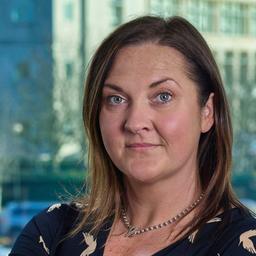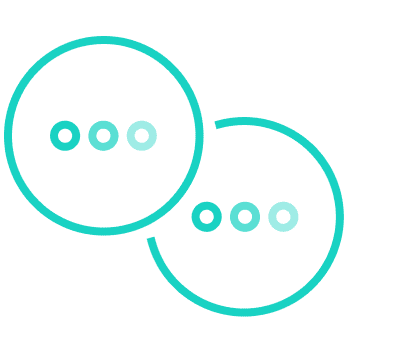Back in 2016, Channel 4 produced a masterpiece of an advert to promote its coverage of the 2016 Summer Paralympics in Rio de Janeiro.
It featured a range of people with varying disabilities performing different activities and physical feats, all under the strapline ‘We’re the Superhumans’.
In recent years, paralympic athletes have rightly been heralded for their sporting ability. But the way we see ability, and those who hold it, shouldn’t just be reserved for the ‘superhumans’ of the athletics world.
There is a need to shift perceptions across the whole of society. If we look across the media landscape, there isn’t that much representation in terms of ability.
Positive stories around disability tend to focus on events like the Paralympics. While this is clearly a step in the right direction, the representation of disabled people that we are seeing is around these elite athletes.
We should be sharing and celebrating the ability of people in everyday life. It shouldn’t just be about someone in a wheelchair winning a race, but also celebrate people in wheelchairs who bring in new business, get a promotion, or go above and beyond in their work.
We need to redefine what ability is. That starts by recognising that there is a huge range of ability available in the market.
What is ability – and where to find it
Ability is not necessarily what we traditionally think of, and it is not found in traditional places.
These days we can clearly see that ability can be found everywhere, including in those who have been historically sidelined, such as disabled people.
And it is not just those who are, for example, wheelchair users or partially sighted, but also includes people who are neurodivergent or have mental health issues.
To find ability we need to celebrate the unique talents and strengths of those individuals and what they can bring to an organisation. By doing this, we can not only create a more inclusive and compassionate society but also capitalise on a range of skills that have previously been ignored.
‘Almost a quarter of the working population is classed as disabled’
It is time for everyone to start challenging stereotypes and changing perceptions.
How many people are aware that 23% of the adult working population are classed as disabled? That’s a huge number, so why aren’t we being inclusive towards what is essentially a quarter of the working population?
Not only is it the right thing to do, there are clear business benefits to be had in making a quarter of the workforce feel included, wanted, and valued.
We need to end pre-historic ideas that a disabled worker or someone who is neurodivergent is not going to be as good at their job as an able-bodied person, or that employing them will be time-consuming and potentially expensive.
That’s simply not good enough in 2023, and businesses with such an attitude will be missing out on some amazing talent.
It’s not about pitying people or employing them as some form of charity. It is about being truly inclusive, walking the walk as well as talking the talk, and ultimately taking advantage of people’s abilities, and the strengths and talents they have that aren’t present elsewhere in the workforce.
Embracing different ability
Practically, we need to change the way we work to make sure this workforce is tapped into. For example, a traditional CV or interview process might not suit someone who is neurodivergent.
That could also apply to a candidate who is blind or deaf or has some other type of disability.
The great thing is that technology is coming on so rapidly and the number of tools out there that can help is so vast. I’m neurodiverse myself and have found real benefits in the application of artificial intelligence (AI) tools such as ChatGPT.
AI can also check if an email I write reads correctly, or if I’ve got the grammar and spelling right. For someone who is dyslexic, it can help to provide structure.
We need to feel confident in utilising these tools and not seeing them as ‘cheating’. For me, my job is made easier by the fact I can go onto a website and change the font to a certain colour because I will then be able to read it better.
There are a myriad of ways we can embrace technology to help people make the most of their inherent ability. When I’m applying for a role, the nature of the application process absolutely determines whether I apply for it or not.
Do I have to write a cover letter? If so, that job’s not for me. I’m not going to apply because I’ve already spent the time and effort to make sure my CV is correct and that there aren’t any spelling mistakes. Why should I need to rehash information which is already in my CV?
That’s not something I would be comfortable with. And I think businesses need to make candidates feel comfortable enough to be able to say, ‘this is my difference’.
I’m dyslexic and I shouldn’t have to feel ashamed or embarrassed about it. In fact, I see it as something of a badge of honour: my superpower. I can think outside of the box in a way that someone who isn’t dyslexic might not be able to do.
It’s about finding the positives. Yes, my spelling might not be great and when I read things, I might miss the full meaning but ask me to write down a series of numbers and I’ll work them backwards and forwards, and through as many digits as you like.
Although I haven’t had an official diagnosis, I am convinced I have ADHD. When it comes to doing an interview, I can’t sit still and I’m always fidgeting. It would make a massive difference if I was allowed to have a fidget spinner so my hands didn’t go everywhere.
Of course, it is really easy to talk about getting the environment within your organisation right, but it’s another to live and breathe those values. You can tell when a company is carrying out a tick box exercise.
Ultimately, businesses need to be open to finding ability wherever they are looking. Someone on the spectrum might be very good at hyper-focusing or have excellent attention to detail. They could be extremely methodical in the way they think. These are skills that can be hugely beneficial to any business. Why wouldn’t you want to embrace people with these amazing skills and attributes?
It is all about looking at transferable skills and where people’s abilities fit into your organisation.
Then businesses can really start to make the most of everyone’s superpowers.
Find out more about our Equality, diversity, inclusion and belonging (EDI&B) solution here





